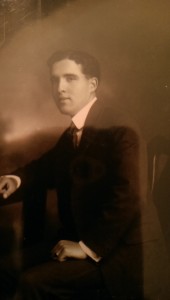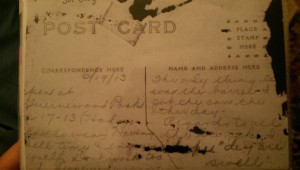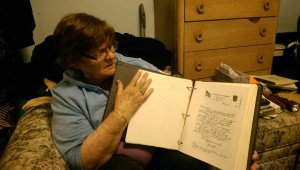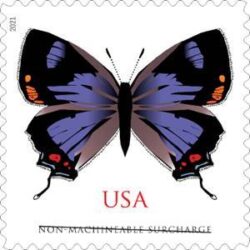
Joseph Bosque, a Sergeant in the U.S. Army during World War I, was deployed on May 20, 1918 from Camp Merritt, New Jersey to Marseilles, France. Although he was not permitted at the time to reveal his destination, he left prearranged clues in his letters to his sweetheart back home in San Francisco, Annie Corbett.
On May 16, 1918 he signed one of his final pre-deployment letters by saying, “Au revoir, ma chère, Joe.” In his final stateside letter, he wrote a brief message, which he signed, “Yours affectionately, Joseph.” The use of his full name served as the signal that, as anticipated, he was on his way to France.
Given that this was wartime and Joe was a member of the U.S. Army, sometimes it was necessary to read between the lines of his letters.Taken as a whole, however, they tell a unique story about his days in France while the Allied Powers fought on the Western Front.
Upon his arrival in France, he described his journey thus: “The eats was fine and as the weather was ideal, we surely had ‘some’ trip. The salt air is very invigorating and makes a fellow feel fine.” But even the ever upbeat Joe was taken aback by the sobering realities the soldiers encountered upon their arrival in a small French village. “The people all seem to be pretty poor, most of them wearing wooden shoes and as most of the women are dressed in black it brings home to each of us the sacrifices made by the French in this war.”
In early June, he noted the high prices and limited availability of goods in France. The U.S. government prohibited mailing packages to the soldiers, “as they need all the available ships for transportation of troops.” Waiting in long lines for three minute, ice cold showers became the new reality.
The ever-exuberant Joe cannot stay down for long, however. “The ten of us from Camp Johnston are together in one tent and we have some fine times,” he wrote. “We chip in and buy strawberries (one thing that is plentiful), jam and condensed milk and with these additions, we have regular meals.”
Joe’s next challenge was to take the train to Marseille by himself, a 36-hour journey that required changing trains. Although he did not speak French, his even disposition and sense of humor remained intact. “I got by alright, but you can believe me that I was always at the proper RR station at the right time in order not to miss the train. But unlike the old times in San Francisco it was the trains and not I that were late.”

Knowing the ways of soldiers, Joe also watched out from afar for his friend Nellie. “Tell Nellie not to place too much hope in that picture of Terry’s until she finds out where he sent the other eleven to. You know, the photographers won’t take less than a dozen, so no doubt Terry has made use of the balance.”
By August 24, now in Marseille, Joe started to receive a backlog of letters from home, some written a full three months earlier. On September 21, he wrote that he had received “six from Mother and one each from George Lotz, Charlie, Nellie K, Elden Cunningham, Frank Craighill and the Y.M.I. (a bi-weekly circular). I guess that ought to satisfy me don’t you think?”
Joe’s post in the Army included the benefit of travel. Being assigned to the payroll department, his tasks included delivering paychecks to troops throughout the south of France. On such a journey, he visited the Palace of the Popes in Avignon, describing the rare paintings and tapestries and “wonderful stained glass windows.”
“The trip surely was worth a hundred dollars to me and even more when I consider that people travel thousands of miles to see such sights as I have seen lately.” A month later, Joe traveled to Lyon, where he enjoyed “the best hotel, and believe me it felt good to hit the hay early for the French sure can make SOME BED.”
The Armistice was signed in November and the war was nearly over. “When it was announced that the armistice had been signed…the fun commenced and I don’t expect to see such a sight again if I live to be eighty years of age. Everyone went nearly crazy,” he wrote. “Men, women and children were running around kissing each other and shouting, ‘Vive l’France, viva l’Amerique’ and waving flags and every once in a while a bunch would get together and sing the Marseillaise.”
As he described the progression of the celebration, with sirens, church bells and other noise making contrivances, a parade, flag waving and crowds, Joe clearly captured a moment of sheer joy that took place that night. But the following day, he wrote, “give everybody my best regards and tell them just because the war is almost ‘fini’ they shouldn’t think that no more letters are interesting. Keep us supplied with news and things will move along better here.”
Joe Bosque remained stationed in France for another year, so those letters from home surely were welcome. During his remaining time in Marseille, General John J. Pershing visited his unit. It was here that Joe learned of the death of former President Theodore Roosevelt, who he described as “a great statesman,” who had the courage of his convictions, “though a bit radical on some questions.”
The peace treaty (“La Paizet Faite” read the headlines in the French papers) was signed in June 1919, and American troops finally began to depart for home. The remaining troops still needed their paychecks, however. In July, Joe, among others, was sent to Luxembourg to close out the Dispersing Office of the U.S. Army.

Despite his travels to Paris, the Alsace, Brussels and Luxembourg, Joe was delighted to be headed home in November1919. Following a brief visit to New York City, he returned to San Francisco to marry his Annie. They settled in San Francisco’s Mission District, then later in the Sunset, where they raised their eight children; their over 40 grandchildren treasure the extraordinary stories of their grandfather, Joseph Bosque.
Letters From France: Deployment continues the story of Joseph Bosque which can be found here: https://www.socialcorrespondence.com/letters/letters-from-france-1917-1919/. Again, I am deeply grateful to Jennifer Greenlee and the entire Bosque family for sharing the letters with me that tell this story.




Shirley Finfrock
11 Nov 2018Is it possible to purchase this privately published letters from Joseph Bosque? My father-in-law was in the infantry during WWI I would like to read this personal experience to gain in site into my father-in-law’s life as a soldier.
Marcia Schneider
23 Nov 2018Dear Shirley,
Because this is not a commercial site, I do not sell anything through Social Correspondence. I have inquired of the family that allowed me access to these letters, and it seems that a limited number of copies were printed, only enough for family members. They (the family) are looking into scanning and printing additional copies. If this happens I can put you in touch with a representative. Thanks for your inquiry and sorry I cannot help further.